
“There is need for a new language and new landscape. We require a New Pentecost experience that involves, not of speaking in many times but listening with many ears.” Rev. Dr. Peniel Rajkumar, WCC.
International Youth Day (IYD) Celebration
The NCCI proffers room to maneuver the youth of Indian Churches on occasion of International Youth Day (IYD) on 12th August 2020. The NCCI’s theme of IYD 2020, “We Count…Youth Engagement for Global Action” based on the UN’s IYD theme “Youth Engagement for Global Action” seeks to highlight the ways in which the engagement of young people at the local, national and global levels is enriching national and multilateral institutions and processes, as well as draw lessons on how their representation and engagement in formal institutional politics can be significantly enhanced.
Rev. Asir Ebenezer, General Secretary, NCCI in his introductory greetings asserted the importance of Sustainable development goals targeted to achieve by 2030 and the need of its critical engagement. “We count” as the theme in our culturally oriented context that we always have a leadership role who are older and youth activity and representation are restricted on terms of experience. He emboldened the youth with contention that youth are well equipped to clear the disorder the older people have brought this world to.
Mr. Liju Kuriakose, the youth Vice President of NCCI invigorated the youth and youth leaders of various churches mentioning it is the “youth that has the duty to be protectors of the nation, be the prophet of the nation, be the guiding lamp of change in each age in each period of its own we have to be responsible and not remain in our own Comforts in our own cocoons which is a luxury but we have to be torch bearers of change and the new age wisdom.”
Rev. Dr. Peniel Rajkumar, Programme Executive, Interreligious Dialogue and Cooperation, World Council of Churches (WCC) in his keynote address notably highlighted the theme “We count” and questions, do we really think you count in a world that could be sadly described as caught in a spiral of addictive hierarchy? He elucidated this from the challenging times when ‘What would Jesus do’ movement channeled the work of youth. “In the present times there has to be a new slogan “where would Jesus be?” What would be Jesus’ place in church and institutions as a young man in his 30’s given the occlusion and discrimination against youth in our systems and structures, would Jesus be within our churches or outside? How do we move ahead? By being cognizant of my own privileges and recognizing that I am very much part of the problem and remain so useless I see my repentance and redemption by being part of the solution.”
Various international ecumenical youth bodies and churches also joined the celebration and shared greetings to the youth. “Being young today is rewarding as well as challenging. Today young people find many challenges, integrating in the adult-led society, often the challenge are over looked, undervalued,” says Pranita Biswasi, a Program Executive for Youth, Lutheran World Federation (LWF).
“As young people we are not just the church tomorrow but already part of God’s people today. We may lack experience but we are also limited by power struggle to simply speak the truth like the prophet” says Rev. Cindy Huang, Presbyterian Church in Taiwan, a Youth Executive Committee member of Christian Conference of Asia (CCA).
“As youth, particularly in South Asia, commonly ask the socio-political problems and the endemic problem of corruption in their countries, youth engagement and increased representation across institutions is important for us to have a hope for better tomorrow.” Ms. Prasansa Subba, Coordinator, Nepal, South Asian Christian Youth Network (SACYN).
Role of Youth in Political Engagement
Rev. Fr. Vineeth Koshy keenly clarified, distaste in politics emerges at a very early age among the youth. There have been many connotations to Indian politics over the last decade, primarily the negative ones. Rev. Koshy further pressed upon that today’s young generation is more powerful than the previous one. He urged the youth to actively involved in the political movement as it has a direct widespread impacted upon social, economic, environmental and religious welfare of the country.
The NCCI International Youth Day celebration also witnessed cultural activities such as classical, devotional, traditional dances and songs from the youth bodies of the member churches of NCCI showcasing and representing the rich culture and practices throughout the country.
International Youth Day Webinar Series
As part of the IYD commemoration, the NCCI also conducted a weekly month-long series of webinars from 29th July to 18th August 2020 addressing various issues and concerns facing by the youth and the society at large to bring awareness, educate, and build their capacity for further active engagement at the grassroots, regional, national and international level. The IYD webinar series addressed the issues such as, Affirmation Human Rights: Intercepting Human Trafficking; Youth Mental Health; and Youth Engagement for Peacebuilding.
Mr. Jianthaolung Gonmei
Executive Secretary – NCCI Youth Concerns

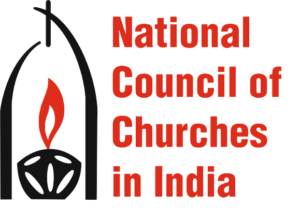





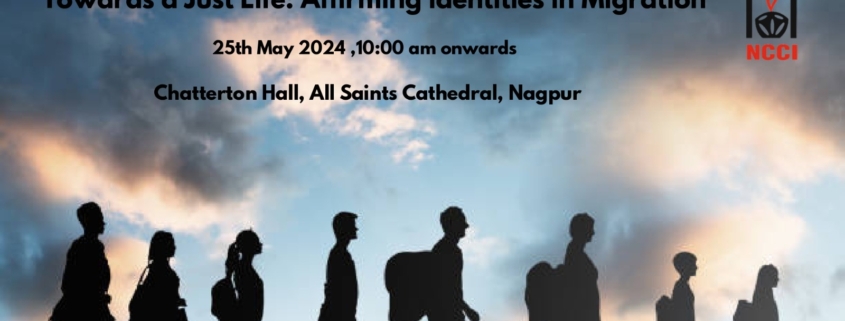
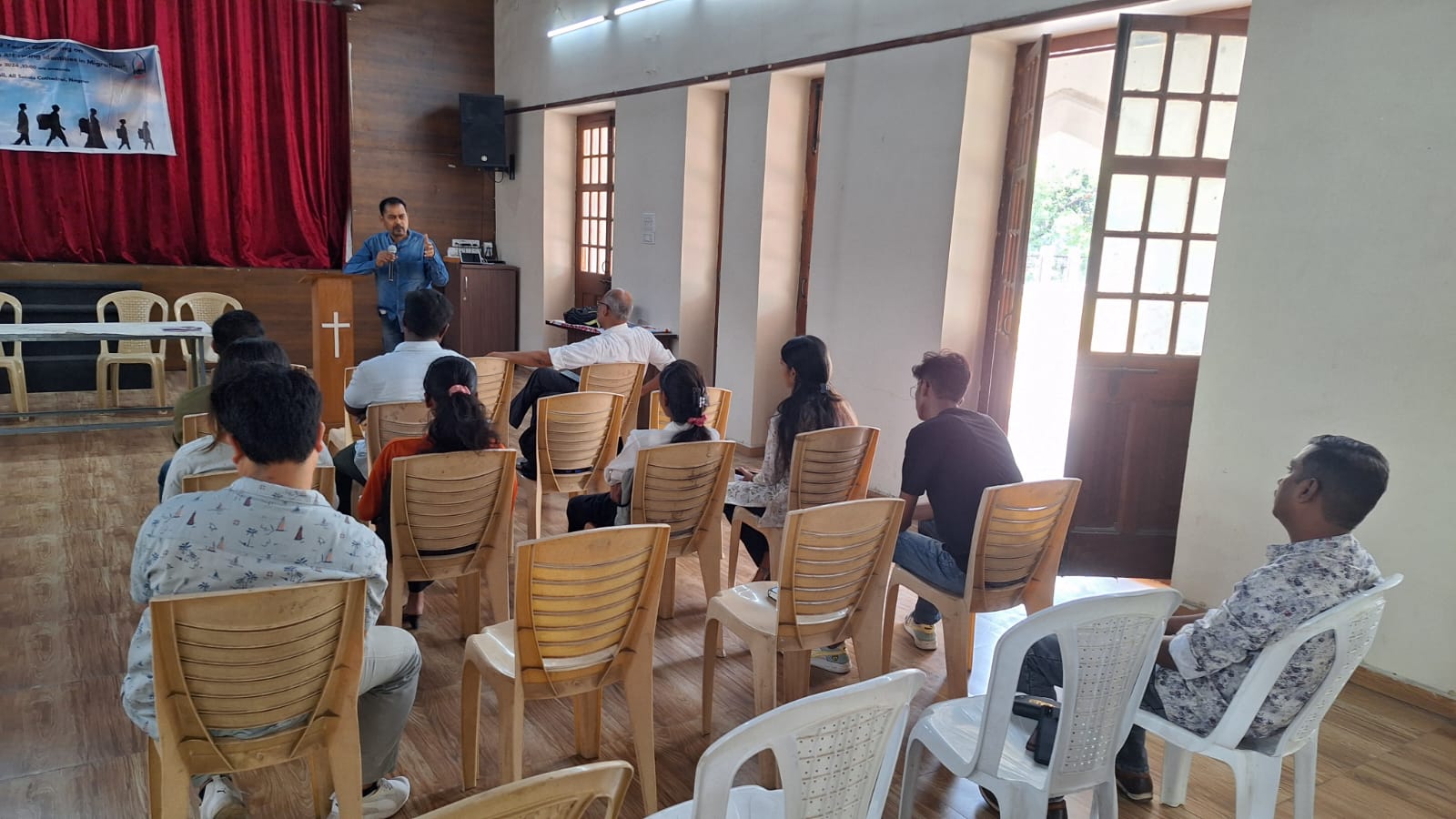



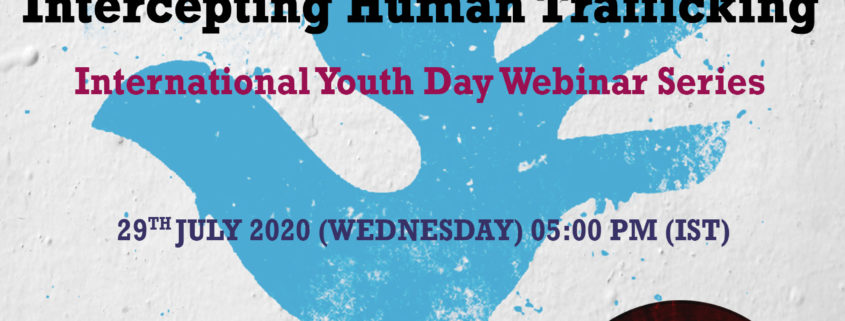

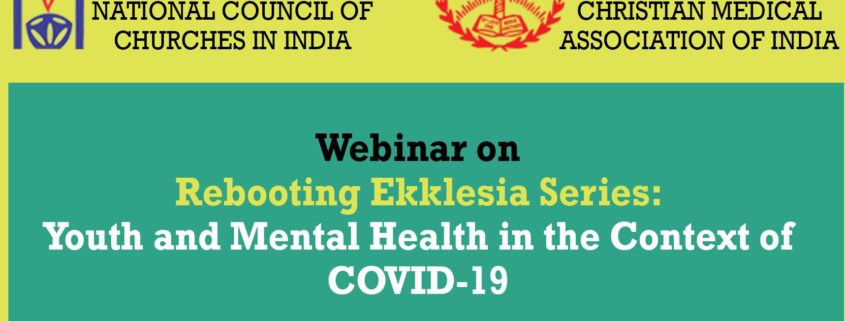
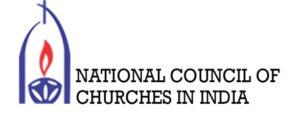

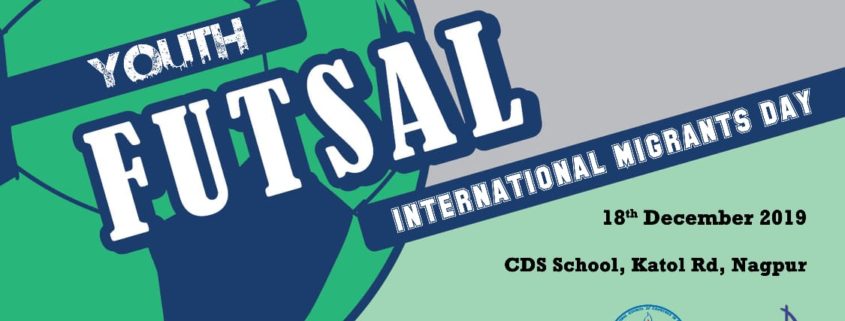
 Migration is a major phenomenon in the history of the world. People keep migrating for different reasons. Some find life in migrating, while for some it is a matter of survival. A large part of migration in today’s context however is forced on people and this needs to be addressed.
Migration is a major phenomenon in the history of the world. People keep migrating for different reasons. Some find life in migrating, while for some it is a matter of survival. A large part of migration in today’s context however is forced on people and this needs to be addressed. In line with this mandate, a “Futsal Tournament” was planned so that concerns and issues endemic to migration can be highlighted among youth and students. The Futsal tournament kicks started on 18th December, 2019 on International Migrants Day. NCCI in collaboration with Maharashtra Council of Churches Nagpur Zone organized the tournament at Chandra Devi Saraf School, Nagpur. Eight teams, representing the Nagpur Mizo Union, North East Christian Fellowship, All Saints Cathedral, New Life Charitable Trust, Sports Ministry, SFS Parish, Martin Nagar Parish, Pinnacle Worshippers and Hislop College participated in the Futsal Tournament. Nagpur Mizo Union and Hislop College were the two teams who played the final match. Nagpur Mizo Union won the match and Hislop College were the runners up.
In line with this mandate, a “Futsal Tournament” was planned so that concerns and issues endemic to migration can be highlighted among youth and students. The Futsal tournament kicks started on 18th December, 2019 on International Migrants Day. NCCI in collaboration with Maharashtra Council of Churches Nagpur Zone organized the tournament at Chandra Devi Saraf School, Nagpur. Eight teams, representing the Nagpur Mizo Union, North East Christian Fellowship, All Saints Cathedral, New Life Charitable Trust, Sports Ministry, SFS Parish, Martin Nagar Parish, Pinnacle Worshippers and Hislop College participated in the Futsal Tournament. Nagpur Mizo Union and Hislop College were the two teams who played the final match. Nagpur Mizo Union won the match and Hislop College were the runners up.